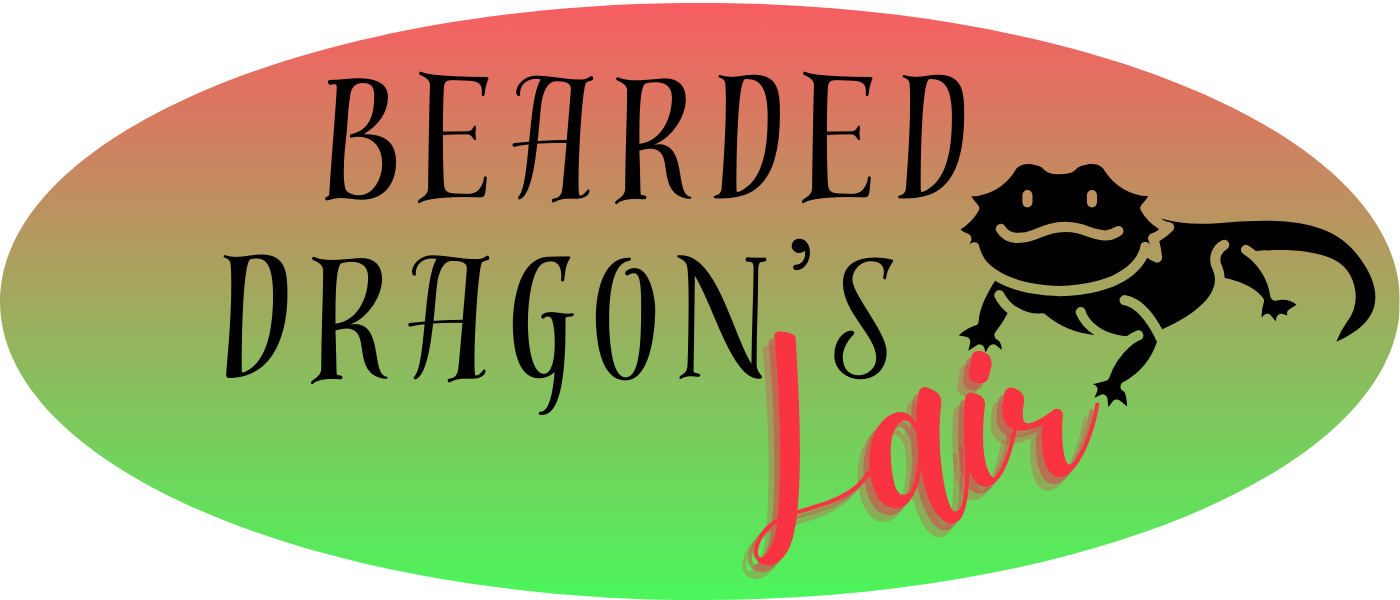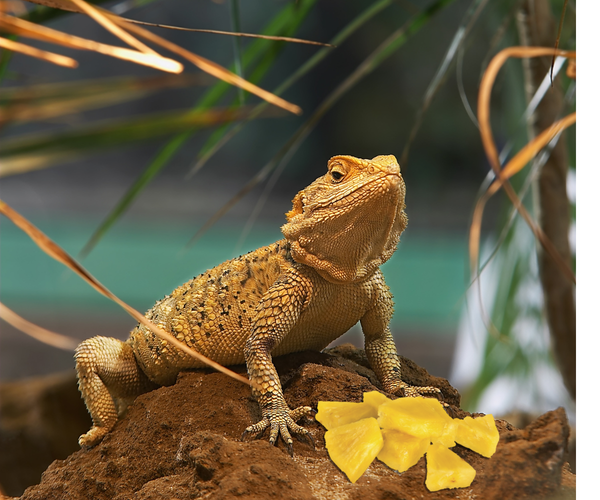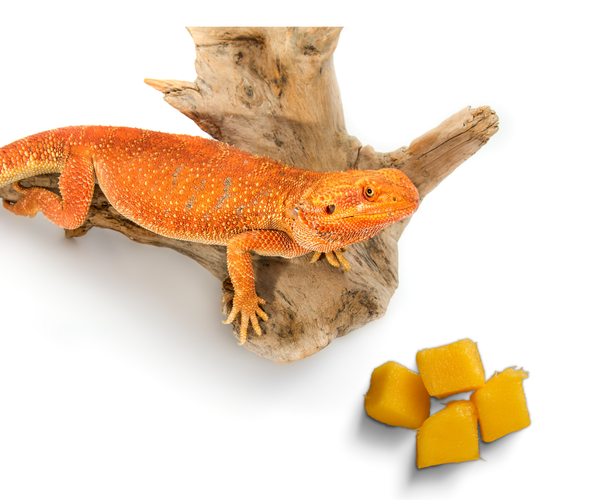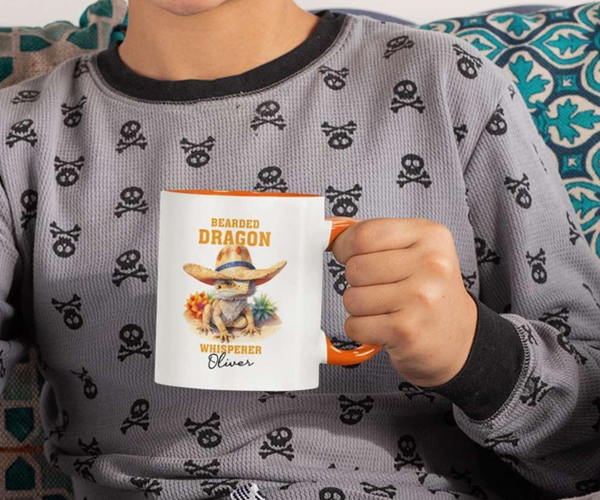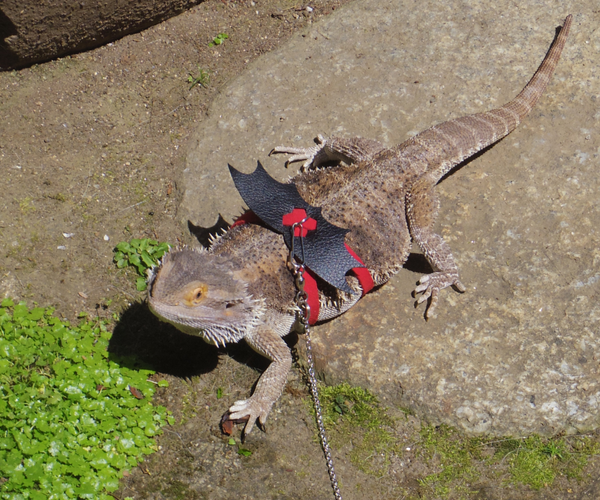How Long Can a Bearded Dragon Go Without Eating?
Bearded dragons are native to the arid, desert regions of Australia, which has equipped them with the ability to endure periods of food scarcity.
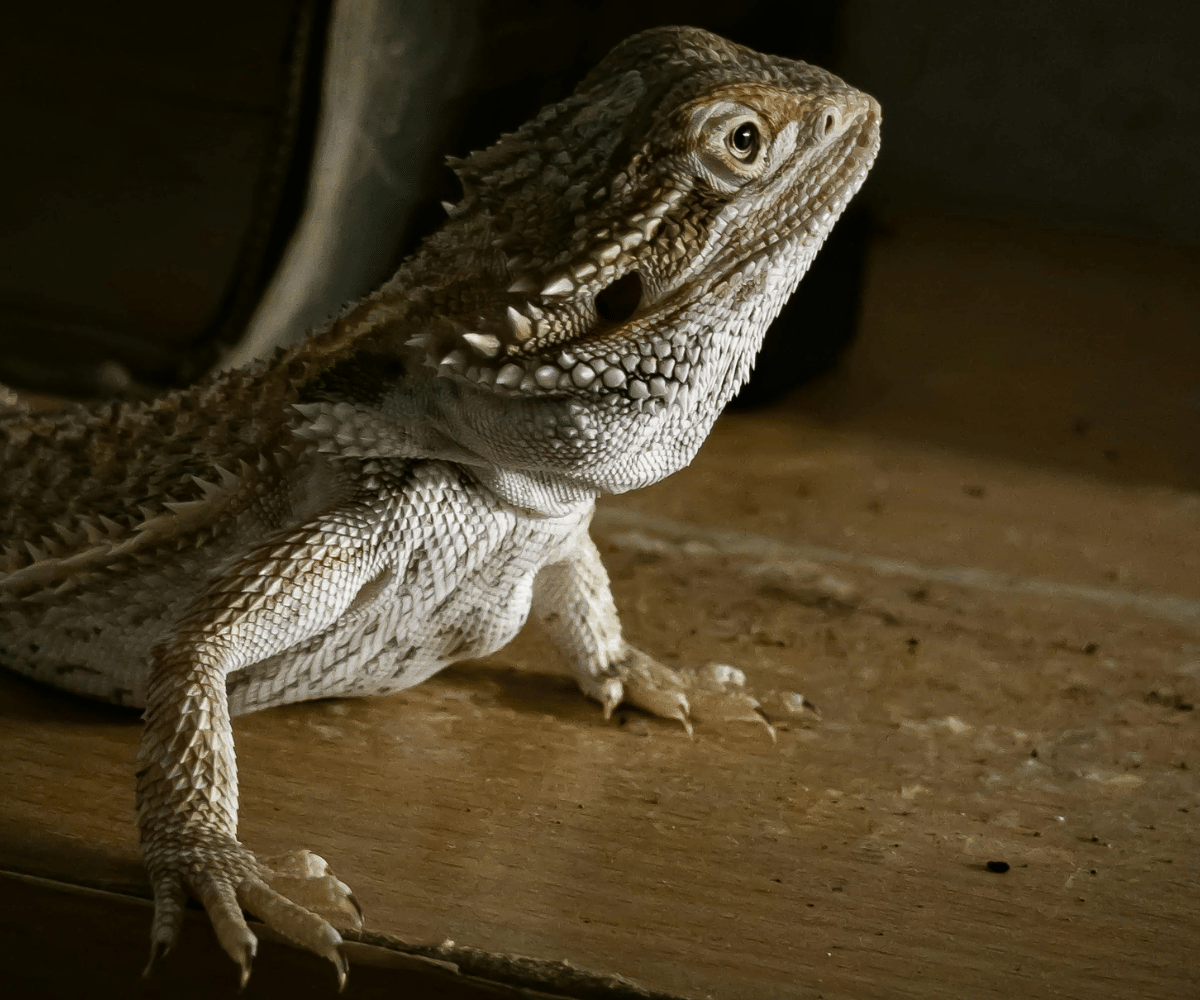
Bearded dragons, the charismatic reptiles from Down Under, have become beloved pets in many households. Their unique appearance and relatively easy care make them a popular choice for reptile enthusiasts. However, one question that often arises among bearded dragon owners is about their eating habits, particularly how long they can survive without food. This article delves into the survival capabilities of bearded dragons when it comes to their diet.
Key Takeaways:
- Bearded dragons can survive for varying periods without food depending on age, health, and environmental conditions.
- Understanding the signs of health issues related to feeding is crucial for bearded dragon owners.
- Proper husbandry and veterinary care are essential to ensure the well-being of a bearded dragon during periods of reduced or no food intake.
Understanding Bearded Dragon Biology
Bearded dragons are native to the arid, desert regions of Australia, which has equipped them with the ability to endure periods of food scarcity. Their biology allows them to slow down their metabolism during times of stress or lack of resources, a state known as brumation. This is similar to hibernation in mammals and can significantly affect their eating patterns.
In the wild, bearded dragons are opportunistic feeders, consuming a variety of foods ranging from insects to greens and fruits. This varied diet is essential for their health, providing a balance of nutrients necessary for their well-being. In captivity, replicating this diet is crucial for maintaining their health and can influence how long they can go without eating.
Age and Health Factors
The age and health of a bearded dragon play a significant role in how long it can go without food. Juvenile dragons, which are still growing, require more frequent feeding schedules, typically daily, to support their rapid growth and development. On the other hand, adult bearded dragons can often go longer without food, especially if they are healthy and have been receiving a nutritionally balanced diet.
Health issues can also impact a bearded dragon's ability to go without eating. Parasitic infections, impaction, and metabolic bone disease are common health problems that can affect their appetite and digestion. Regular check-ups with a reptile veterinarian can help catch these issues early and ensure your bearded dragon remains healthy.
Seasonal Changes and Brumation
Bearded dragons experience brumation, a period of dormancy that usually occurs during the cooler months of the year. During brumation, their metabolism slows down, and they may eat less or stop eating entirely. It's not uncommon for a bearded dragon to go without food for several weeks or even months during this time, as long as they are properly hydrated and in good health before entering brumation.
The length of brumation can vary from one dragon to another, and not all bearded dragons will brumate. It's important for owners to recognize the signs of brumation and differentiate it from illness. A lethargic dragon that refuses food but has no other signs of sickness may simply be preparing to brumate.
Environmental Impact on Appetite
The environment in which a bearded dragon lives can greatly influence its appetite and how long it can go without eating. Factors such as temperature, lighting, and habitat setup all play a role in their overall health and feeding behavior. Bearded dragons require a warm environment with a basking spot to properly digest their food. If the temperature is too low, they may eat less or stop eating because their metabolism slows down.
Proper UVB lighting is also essential for bearded dragons to synthesize vitamin D3, which is necessary for calcium absorption. Without adequate UVB exposure, they can develop health issues that affect their appetite. Ensuring that your bearded dragon's habitat meets their environmental needs is key to preventing appetite loss due to environmental stressors.
Dietary Needs and Feeding Habits
A bearded dragon's diet should consist of a mix of insects, greens, and occasional fruits. Younger dragons will eat more insects, which are high in protein, to support their growth, while adults will eat more plant-based foods. The frequency and amount of food offered will depend on the dragon's age, size, and activity level.
It's important to offer a variety of foods to prevent nutritional deficiencies that can affect a bearded dragon's health and appetite. A lack of appetite can sometimes be attributed to a monotonous diet. By providing a range of foods, you can help ensure your bearded dragon remains interested in eating and receives all the necessary nutrients.
Signs of Health Issues Related to Feeding
Bearded dragons can exhibit certain signs that indicate health issues related to feeding. These can include a lack of appetite, weight loss, lethargy, and abnormal feces. If you notice any of these signs, it's important to consult with a reptile veterinarian to determine the cause and appropriate treatment.
Weight loss can be particularly concerning, as it may indicate that the bearded dragon is not consuming enough food or is unable to properly digest and absorb nutrients. Monitoring your dragon's weight and body condition can help you catch potential issues early.
Proper Husbandry Practices
Maintaining proper husbandry practices is essential for the health of your bearded dragon, especially when it comes to feeding. This includes providing a clean and safe enclosure, appropriate temperatures and lighting, and a balanced diet. By ensuring that your bearded dragon's basic needs are met, you can help prevent health issues that could affect their ability to eat.
Regular cleaning of the enclosure and food dishes can help prevent the spread of bacteria and parasites that can cause illness. Additionally, providing a stress-free environment can encourage regular eating habits and prevent appetite loss due to stress.
Veterinary Care and Intervention
If your bearded dragon stops eating for an extended period, veterinary care may be necessary. A reptile veterinarian can perform a thorough examination and run diagnostic tests to determine the cause of the appetite loss. Treatment may include medication, dietary changes, or other interventions depending on the diagnosis.
It's important to establish a relationship with a reptile veterinarian who is experienced in treating bearded dragons. They can provide valuable guidance on feeding and care, as well as intervene when health issues arise.
Hydration and Its Role in Fasting
Hydration is crucial for bearded dragons, especially when they are not eating. They can survive longer without food than without water. Providing a source of clean, fresh water is essential, and some dragons may prefer to drink from a water dish, while others may only drink when misted or bathed.
Dehydration can lead to serious health issues and can exacerbate the effects of not eating. Monitoring your bearded dragon's hydration status and offering water regularly can help ensure their well-being during periods of reduced food intake.
Summary
Bearded dragons can go without eating for varying lengths of time depending on factors such as age, health, environmental conditions, and whether they are brumating. While adults may survive for weeks or even months without food during brumation, it's crucial to maintain proper husbandry practices and seek veterinary care if there are signs of health issues. Hydration remains a key component of their care, regardless of their feeding schedule. By understanding the needs of your bearded dragon and providing a suitable environment and diet, you can help ensure their health and longevity.
FAQ Section
Q: How long can a baby bearded dragon go without eating? A: Baby bearded dragons should not go without eating for more than 24-48 hours due to their rapid growth and high metabolic rate. If a baby dragon refuses food for longer than this, it's important to seek veterinary advice.
Q: Can a bearded dragon survive without food during brumation? A: Yes, a healthy adult bearded dragon can survive without food for several weeks or even months during brumation, as long as they are properly hydrated and were in good health before entering this dormant state.
Q: What should I do if my bearded dragon stops eating? A: If your bearded dragon stops eating, first ensure that their habitat is set up correctly with proper temperatures and UVB lighting. If there are no environmental issues, consult with a reptile veterinarian to rule out any health problems and receive appropriate treatment.
